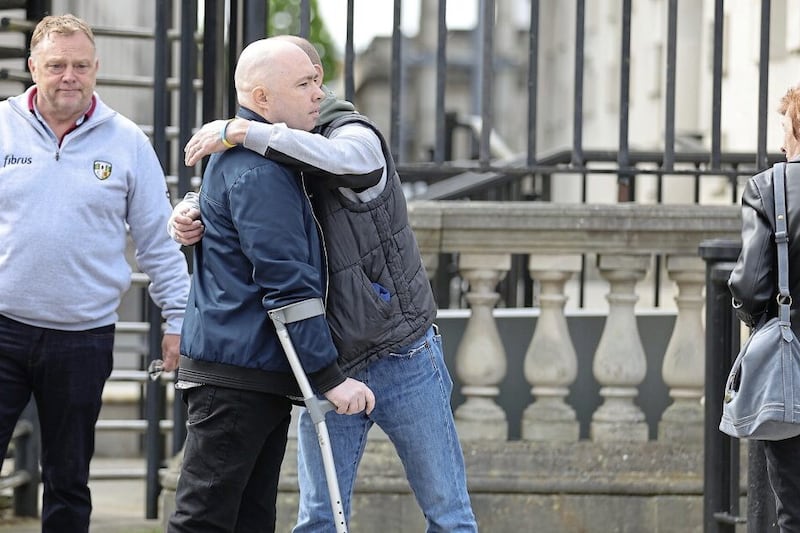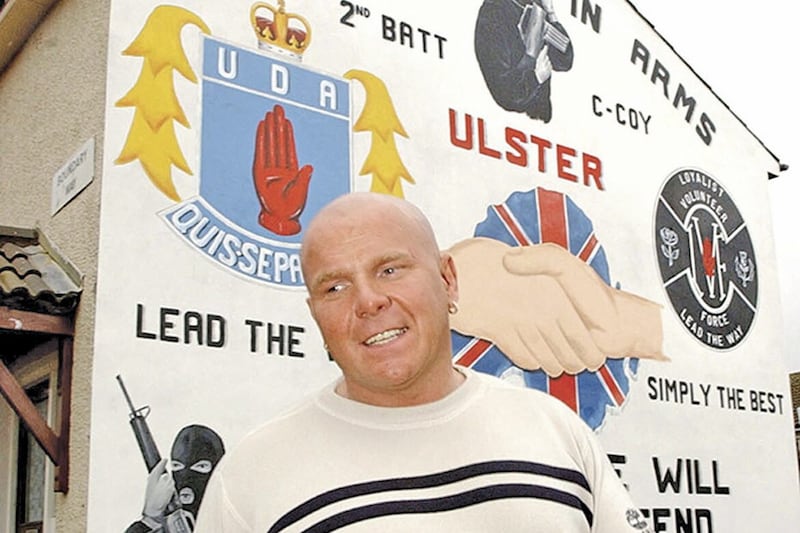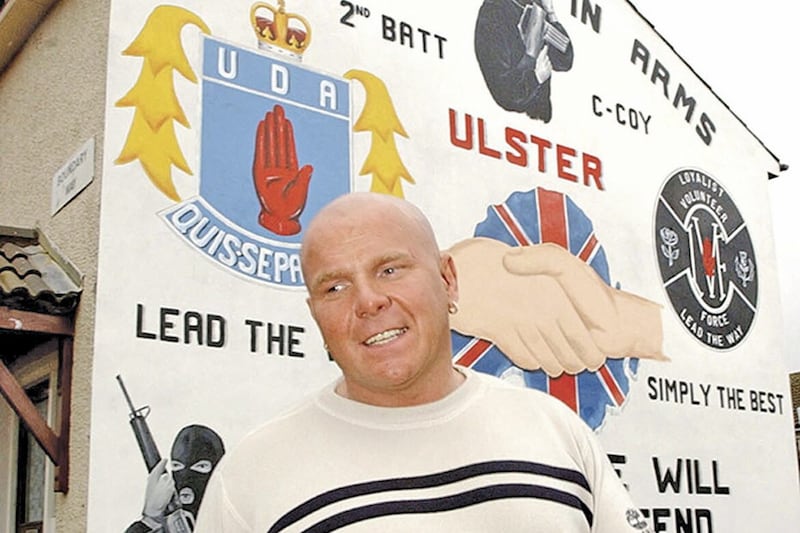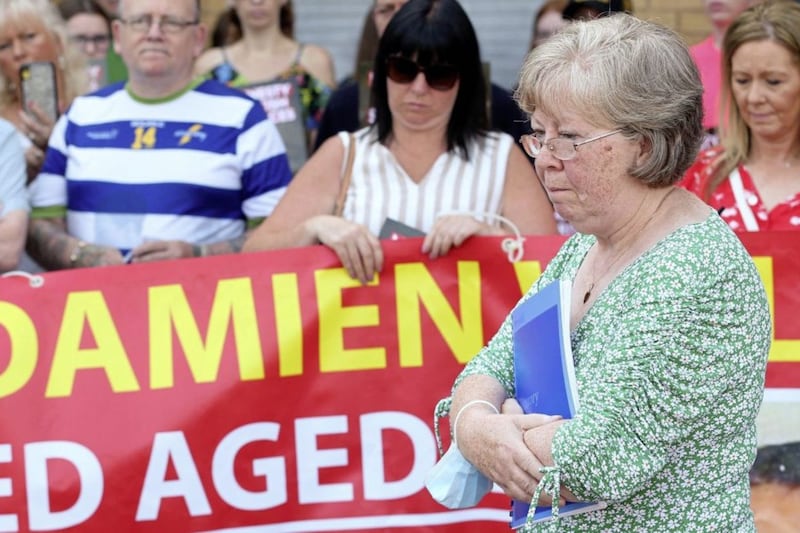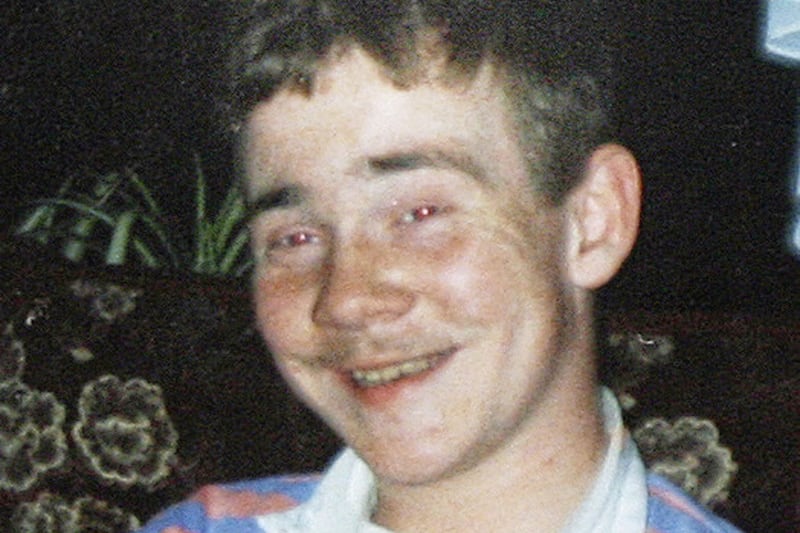POLICE allegedly failed to disrupt former loyalist terror chief Johnny Adair’s murderous plans in advance of the killing of two Catholic council workers, the High Court has heard.
Counsel for one victim’s son questioned why there was no apparent surveillance of Adair and his paramilitary unit before the gun attack in west Belfast 30 years ago.
James Cameron (54) and Mark Rodgers (28) were shot dead at their Kennedy Way work depot in October 1993.
Several others were wounded in an attack carried out by the UFF, a cover name for the UDA.
The shootings occurred three days after the IRA’s Shankill Road bombing.
Amid suspected security force collusion with loyalist gunmen, Colm Cameron is challenging the independence of a PSNI Legacy Investigation Branch probe into his father’s murder.
Mr Cameron is also taking legal action against the Police Ombudsman for alleged delays in dealing with a complaint lodged in 2008.
The court heard the council workers were killed at a time when there was known to be a heightened risk against Catholics.
Hugh Southey KC, for Mr Cameron, cited material contained in a book which indicated the potential involvement of the UFF’s C Company, then commanded by Adair.
“There’s a reference to Mr Adair allegedly having said he was going to plan a mass murder in the days before (the shootings),” he said.
“That raises the issue of why there was apparently no surveillance of Mr Adair.”
Amid raised tensions and threat level at that time, it was contended that the Kennedy Way depot was an obvious target because of its Catholic workforce.
But according to Mr Southey, a vehicle checkpoint had been stood down an hour before the gunmen arrived without any proper explanation.
In 1995 Adair, was convicted of directing terrorism and sentenced to 16 years in prison. He was released early as part of the Good Friday Agreement.
An internal power struggle eventually led to him being ousted and expelled from the paramilitary organisation in 2002.
It was contended, however, that there were suggestions he received “assistance from security forces” during his time in charge of C Company.
Mr Southey also argued that the gun used to kill the council workers may have been part of an arsenal of rifles smuggled into Northern Ireland by the security force agent Brian Nelson.
Counsel for police stressed there had been no specific threat against the murdered council workers.
The court also heard that no decision was taken to withdraw any surveillance in operation at the time.
Mr Justice Humphreys reserved judgment.
Following the hearing Mr Cameron’s solicitor, Kevin Winters, said: “This is a big day for the families of those killed at Kennedy Way, and all survivors, in their quest to get some answers.”




